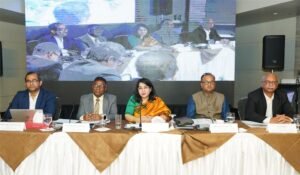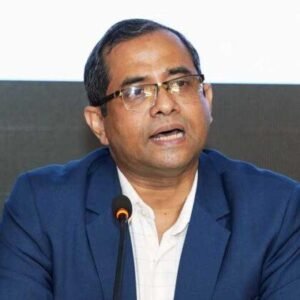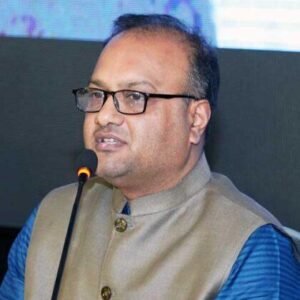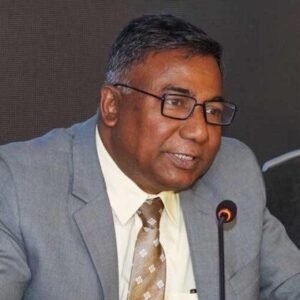
The Government must prioritise the energy transition goal by accelerating renewable energy initiatives in the coming years. These challenges include the burden of overgeneration capacity, the phased elimination of capacity payment for quick rental power plants, inadequacies in the planning of transmission and distribution systems, uncertainties in the fuel import mechanism, the debilitating impact of the dollar crisis on fossil fuel imports, a nascent interest in domestic coal transition, the necessity for imported fuel price adjustments as per International Monetary Fund (IMF) conditionalities, and setting robust and transparent targets for renewable energy deployment. It is expected that the new government will announce an action plan to address the energy transition challenges to effectively tackle these energy transition challenges.
These observations emerged at the dialogue titled ‘Challenges and Opportunities for Energy Transition in Bangladesh: A Citizen’s Manifesto’ on Wednesday, 14 February 2024. The dialogue centred around two studies conducted by CPD — ‘Citizen’s Manifesto on Energy Transition‘ and ‘Energy Transition for Addressing the Energy Crisis in Bangladesh: Perception of Political Parties.’ These studies aimed to illuminate the challenges and opportunities of energy transition from the perspectives of both political parties and citizens.
Dr Fahmida Khatun, Executive Director, CPD, chaired the session and said, ‘An effective energy policy can only succeed if it aligns with the interests of all stakeholders. Historically, manifestos have often failed to adequately incorporate essential energy plans, but there is a noticeable shift occurring’.
 In his keynote presentation, Dr Khondaker Golam Moazzem, Research Director, CPD, underscored the short-term targets that should be implemented within June 2024 to ensure a smooth transition to renewable energy.
In his keynote presentation, Dr Khondaker Golam Moazzem, Research Director, CPD, underscored the short-term targets that should be implemented within June 2024 to ensure a smooth transition to renewable energy.
In terms of policies and planning, it is crucial to revise demand forecasting, transition payments for fuel to the local currency, implement competitive bidding for power plants, and mandate regular financial reporting from energy-related institutions.
‘Fuel purchases should be done through hedge funds and at a long-term fixed price’ suggested Dr Moazzem. He added that spot market commissions from fuel purchases should be eliminated.
The Research Director recommended improvements in electricity production, import and supply, emphasising the need for regular audits to enhance power plant efficiency. He also suggested implementing demand response programmes based on nationally representative data. Additionally, he advised reducing tariffs on solar panels to promote their widespread adoption.
 When considering renewable energy production, import, and supply, he recommended promoting biogas facilities for rural households and irrigation, launching a national campaign to promote renewable energy, and introducing net metering.
When considering renewable energy production, import, and supply, he recommended promoting biogas facilities for rural households and irrigation, launching a national campaign to promote renewable energy, and introducing net metering.
Mr Tanvir Shakil Joy, MP, Member, Parliamentary Standing Committee on Ministry of Power, Energy and Mineral Resources, highlighted the diminishing electricity crisis. He cautioned against reducing coal-fired power plant usage, fearing negative public perception if electricity supply falls short during the transition to renewable energy.
 Mr Mohammad Hossain, Director General, Power Cell, Power Division, Ministry of Power Energy and Mineral Resources, Government of Bangladesh, said ‘Ending the over-dominance of the existing fossil-fuel-based energy system and achieving energy mix diversification may not be immediately feasible. However, steps can be taken to progressively reduce this over-dominance’.
Mr Mohammad Hossain, Director General, Power Cell, Power Division, Ministry of Power Energy and Mineral Resources, Government of Bangladesh, said ‘Ending the over-dominance of the existing fossil-fuel-based energy system and achieving energy mix diversification may not be immediately feasible. However, steps can be taken to progressively reduce this over-dominance’.
Dr M Tamim, Professor and Dean of Chemical and Materials Engineering Faculty, BUET and Former Special Assistant to the Chief Advisor, emphasised the necessity of analysing the current situation in the power sector before formulating any recommendations. He highlighted that Bangladesh currently operates 10,000 MW of coal-fired power plants, which are expected to remain operational for at least the next 20 years. Therefore, it is imperative to acknowledge the reality of needing to supply coal to sustain these plants. Additionally, efforts must be directed towards finding ways to gradually phase out the use of these coal-fired power plants and transition towards renewable energy sources.
‘In the coming years, renewables are poised to become the standard asset’ said the Director of Centre for Energy Research (CER), United International University (UIU), Mr Md. Shahriar Ahmed Chowdhury. He cautioned that if we persist in funding non-renewable projects, we will inevitably face repercussions in the long term.
Mr Hasan Mehedi, Chief Executive, Coastal Livelihood and Environmental Action Network (CLEAN), said that the targets outlined in the Mujib Climate Prosperity Plan (MCPP) and the 8th Five Year Plan (8FYP) require a comprehensive and detailed action plan to be effectively achieved. He also proposed implementing the ‘No Electricity, No Pay’ rule for all independent power producers, extending its application beyond renewables to ensure accountability.
Mr Abul Kalam Azad, Manager, Just Energy Transition, ActionAid Bangladesh said, ‘In the energy sector, market forces do not always dictate outcomes, particularly given its strategic importance to politicians’. He suggested that it is imperative that we reduce our reliance on fossil fuels. Our government must grasp the direction of the global trend and allocate due attention accordingly, which is currently lacking.
‘Bangladesh’s energy purchases are becoming increasingly costly, resulting in a rise in payment failures’ said the Lead Energy Analyst of Institute for Energy Economics and Financial Analysis (IEEFA), Mr Shafiqul Alam. He added, ‘The manifesto lacks a comprehensive focus on energy efficiency and fails to mention specific policy instruments. Fortunately, we possess a robust database for conducting technical energy efficiency audits’.
High-level policymakers, diplomats, foreign delegates, researchers, development practitioners, business leaders and representatives, worker representatives, civil society representatives, international development partners, and journalists participated in the dialogue and shared their valuable insights.



